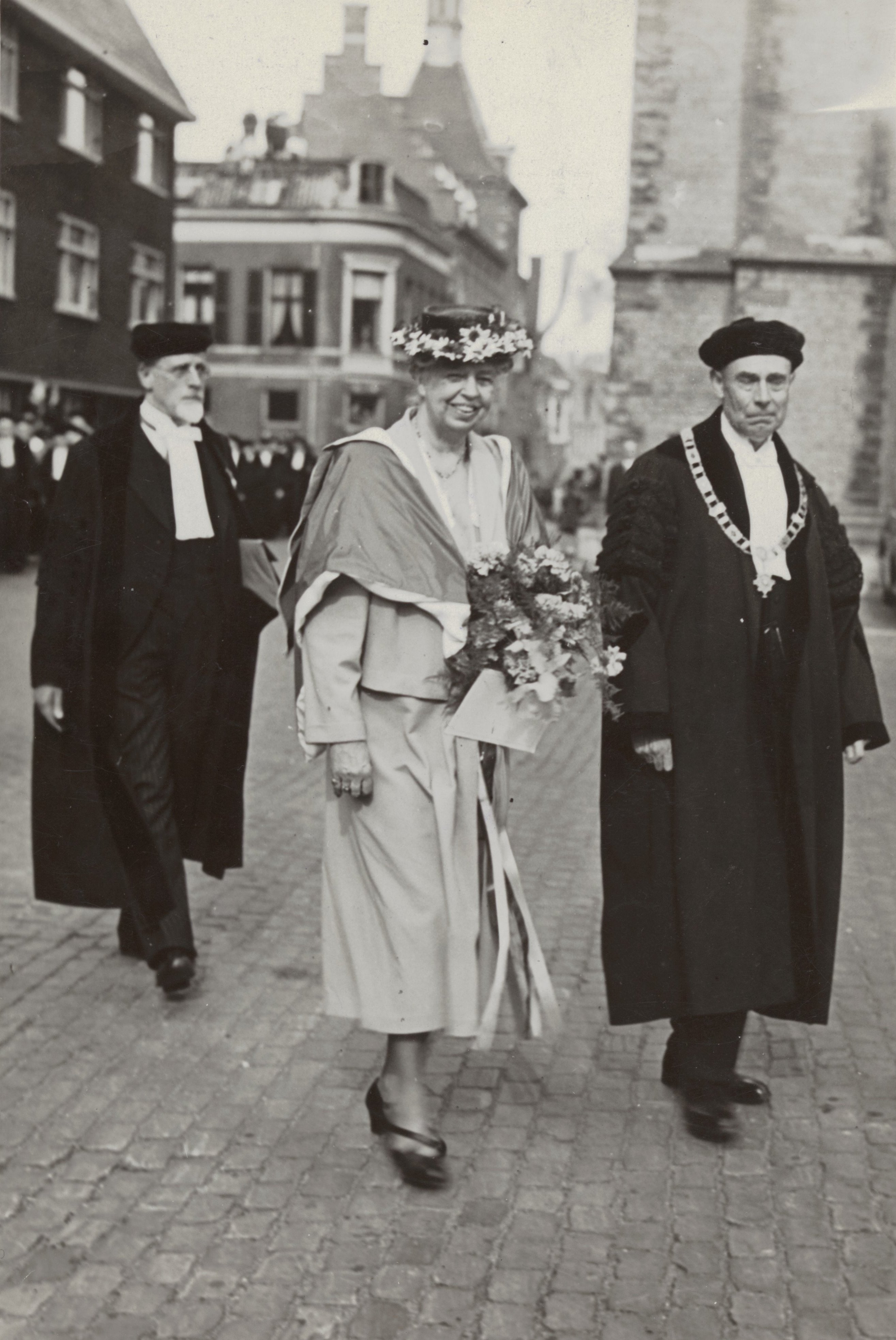|
Mirko Tobias Schäfer
Mirko Tobias Schäfer is a media scholar at Utrecht University. He is an Associate Professor for New Media and Digital Culture and directs the Utrecht Data School. Biography Schäfer studied theater, media and communication studies at the University of Vienna and digital culture at Utrecht University. He obtained a Ph.D. in 2008 at Utrecht University. Schäfer's research revolves around technology and how they transform society. He publishes on digital culture, cultural theory and new media. In 2011 he was awarded a fellowship at the University of Applied Arts Vienna where he investigates artistic technology research. He has been a research fellow at the University of Applied Arts Vienna, postdoctoral fellow at the Centre for Humanities at Utrecht University and a Mercator Research Fellow at the NRW School of Governance. Research activity Schäfer conducted research on hacker communities, user participation and their impact on cultural industries. In stark contrast to the genera ... [...More Info...] [...Related Items...] OR: [Wikipedia] [Google] [Baidu] |
Utrecht University
Utrecht University (UU; nl, Universiteit Utrecht, formerly ''Rijksuniversiteit Utrecht'') is a public research university in Utrecht, Netherlands. Established , it is one of the oldest universities in the Netherlands. In 2018, it had an enrollment of 31,801 students, and employed 7,191 faculty and staff. In 2018, 525 PhD degrees were awarded and 6,948 scientific articles were published. The 2018 budget of the university was €857 million. Utrecht University counts a number of distinguished scholars among its alumni and faculty, including 12 Nobel Prize laureates and 13 Spinoza Prize laureates. Utrecht University has been placed consistently in the top 100 universities in the world by prominent international ranking tables. The university is ranked as the best university in the Netherlands by the Shanghai Ranking of World Universities 2022, ranked 14th in Europe and 54th in the world. The university's motto is "Sol Iustitiae Illustra Nos", which means ''May the Sun of Righteo ... [...More Info...] [...Related Items...] OR: [Wikipedia] [Google] [Baidu] |
Social Media
Social media are interactive media technologies that facilitate the creation and sharing of information, ideas, interests, and other forms of expression through virtual communities and networks. While challenges to the definition of ''social media'' arise due to the variety of stand-alone and built-in social media services currently available, there are some common features: # Social media are interactive Web 2.0 Internet-based applications. # User-generated content—such as text posts or comments, digital photos or videos, and data generated through all online interactions—is the lifeblood of social media. # Users create service-specific profiles for the website or app that are designed and maintained by the social media organization. # Social media helps the development of online social networks by connecting a user's profile with those of other individuals or groups. The term ''social'' in regard to media suggests that platforms are user-centric and enable communa ... [...More Info...] [...Related Items...] OR: [Wikipedia] [Google] [Baidu] |
University Of Vienna Alumni
A university () is an institution of higher (or tertiary) education and research which awards academic degrees in several academic disciplines. ''University'' is derived from the Latin phrase ''universitas magistrorum et scholarium'', which roughly means "community of teachers and scholars". Universities typically offer both undergraduate and postgraduate programs. The first universities in Europe were established by Catholic Church monks. The University of Bologna (), Italy, which was founded in 1088, is the first university in the sense of: *being a high degree-awarding institute. *using the word ''universitas'' (which was coined at its foundation). *having independence from the ecclesiastic schools and issuing secular as well as non-secular degrees (with teaching conducted by both clergy and non-clergy): grammar, rhetoric, logic, theology, canon law, notarial law.Hunt Janin: "The university in medieval life, 1179–1499", McFarland, 2008, , p. 55f.de Ridder-Symoens, Hild ... [...More Info...] [...Related Items...] OR: [Wikipedia] [Google] [Baidu] |
Place Of Birth Missing (living People)
Place may refer to: Geography * Place (United States Census Bureau), defined as any concentration of population ** Census-designated place, a populated area lacking its own municipal government * "Place", a type of street or road name ** Often implies a dead end (street) or cul-de-sac * Place, based on the Cornish word "plas" meaning mansion * Place, a populated place, an area of human settlement ** Incorporated place (see municipal corporation), a populated area with its own municipal government * Location (geography), an area with definite or indefinite boundaries or a portion of space which has a name in an area Placenames * Placé, a commune in Pays de la Loire, Paris, France * Plače, a small settlement in Slovenia * Place (Mysia), a town of ancient Mysia, Anatolia, now in Turkey * Place, New Hampshire, a location in the United States * Place House, a 16th-century mansion largely remodelled in the 19th century, in Fowey, Cornwall * Place House, a 19th-century mans ... [...More Info...] [...Related Items...] OR: [Wikipedia] [Google] [Baidu] |
Digital Media
Digital media is any communication media that operate in conjunction with various encoded machine-readable data formats. Digital media can be created, viewed, distributed, modified, listened to, and preserved on a digital electronics device. ''Digital'' defines as any data represented by a series of digits, and ''media'' refers to methods of broadcasting or communicating this information. Together, ''digital media'' refers to mediums of digitized information broadcast through a screen and/or a speaker. This also includes text, audio, video, and graphics that are transmitted over the internet for viewing or listening to on the internet. Digital media platforms, such as YouTube, Vimeo, and Twitch, accounted for viewership rates of 27.9 billion hours in 2020. A contributing factor to its part in what is commonly referred to as ''the digital revolution'' can be attributed to the use of interconnectivity. Digital media Examples of digital media include software, digital images, ... [...More Info...] [...Related Items...] OR: [Wikipedia] [Google] [Baidu] |
Mass Media Theorists
Mass is an intrinsic property of a body. It was traditionally believed to be related to the quantity of matter in a physical body, until the discovery of the atom and particle physics. It was found that different atoms and different elementary particles, theoretically with the same amount of matter, have nonetheless different masses. Mass in modern physics has multiple definitions which are conceptually distinct, but physically equivalent. Mass can be experimentally defined as a measure of the body's inertia, meaning the resistance to acceleration (change of velocity) when a net force is applied. The object's mass also determines the strength of its gravitational attraction to other bodies. The SI base unit of mass is the kilogram (kg). In physics, mass is not the same as weight, even though mass is often determined by measuring the object's weight using a spring scale, rather than balance scale comparing it directly with known masses. An object on the Moon would weigh ... [...More Info...] [...Related Items...] OR: [Wikipedia] [Google] [Baidu] |
Living People
Related categories * :Year of birth missing (living people) / :Year of birth unknown * :Date of birth missing (living people) / :Date of birth unknown * :Place of birth missing (living people) / :Place of birth unknown * :Year of death missing / :Year of death unknown * :Date of death missing / :Date of death unknown * :Place of death missing / :Place of death unknown * :Missing middle or first names See also * :Dead people * :Template:L, which generates this category or death years, and birth year and sort keys. : {{DEFAULTSORT:Living people 21st-century people People by status ... [...More Info...] [...Related Items...] OR: [Wikipedia] [Google] [Baidu] |
Critical Data Studies
Critical data studies is the systematic study of data and its criticisms. The field was named by scholars Craig Dalton and Jim Thatcher. Prior to its naming, significant interest in critical data studies was generated by danah boyd and Kate Crawford, who posed a set of research questions for the critical study of big data and its impacts on society and culture. As its name implies, critical data studies draws heavily on the influence of critical theory which it applies to the study of data. Subsequently, others have worked to further solidify a field called critical data studies. Some of the other key scholars in this discipline include Rob Kitchin and Tracey P. Lauriault.Kitchin, Rob, 2014 Scholars have attempted to make sense of data through different theoretical frameworks, some of which include analyzing data technically, ethically, politically/economically, temporally/spatially, and philosophically. Some of the key academic journals related to critical data studies include t ... [...More Info...] [...Related Items...] OR: [Wikipedia] [Google] [Baidu] |
New Media
New media describes communication technologies that enable or enhance interaction between users as well as interaction between users and content. In the middle of the 1990s, the phrase "new media" became widely used as part of a sales pitch for the influx of interactive CD-ROMs for entertainment and education. The new media technologies, sometimes known as Web 2.0, include a wide range of web-related communication tools, including blogs, wikis, online social networking, virtual worlds, and other social media platforms. The phrase "new media" refers to computational media that share material online and through computers. New media inspire new ways of thinking about older media. Instead of evolving in a more complicated network of interconnected feedback loops, media does not replace one another in a clear, linear succession. What is different about new media is how they specifically refashion traditional media and how older media refashion themselves to meet the challenges of new ... [...More Info...] [...Related Items...] OR: [Wikipedia] [Google] [Baidu] |
Critical Theory
A critical theory is any approach to social philosophy that focuses on society and culture to reveal, critique and challenge power structures. With roots in sociology and literary criticism, it argues that social problems stem more from social structures and cultural assumptions than from individuals. It argues that ideology is the principal obstacle to human liberation. Critical theory finds applications in various fields of study, including psychoanalysis, sociology, history, communication theory, philosophy and feminist theory. Specifically, Critical Theory (capitalized) is a school of thought practiced by the Frankfurt School theoreticians Herbert Marcuse, Theodor Adorno, Walter Benjamin, Erich Fromm, and Max Horkheimer. Horkheimer described a theory as critical insofar as it seeks "to liberate human beings from the circumstances that enslave them." Although a product of modernism, and although many of the progenitors of Critical Theory were skeptical of ... [...More Info...] [...Related Items...] OR: [Wikipedia] [Google] [Baidu] |
Datafication
Datafication is a technological trend turning many aspects of our life into data which is subsequently transferred into information realised as a new form of value. Kenneth Cukier and Viktor Mayer-Schönberger introduced the term ''datafication'' to the broader lexicon in 2013. Up until this time, datafication had been associated with the analysis of representations of our lives captured through data, but not on the present scale. This change was primarily due to the impact of big data and the computational opportunities afforded to predictive analytics. Datafication is not the same as digitization, which takes analog content—books, films, photographs—and converts it into digital information, a sequence of ones and zeros that computers can read. Datafication is a far broader activity: taking all aspects of life and turning them into data ..Once we datafy things, we can transform their purpose and turn the information into new forms of value There is an ideological aspect o ... [...More Info...] [...Related Items...] OR: [Wikipedia] [Google] [Baidu] |



